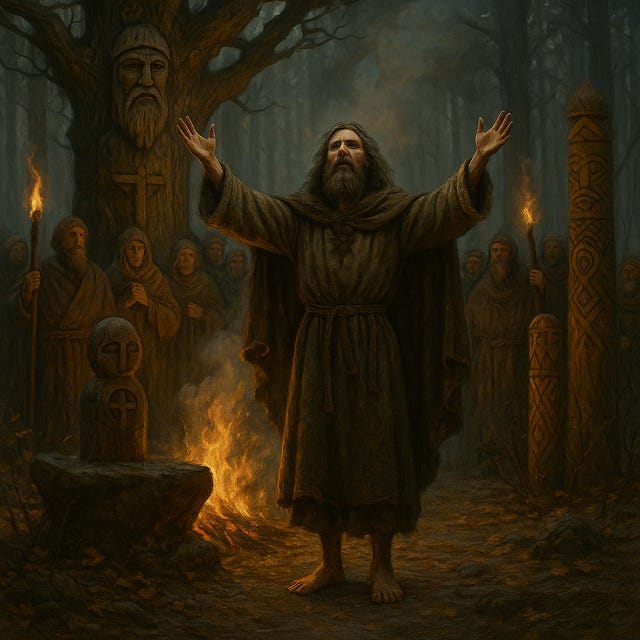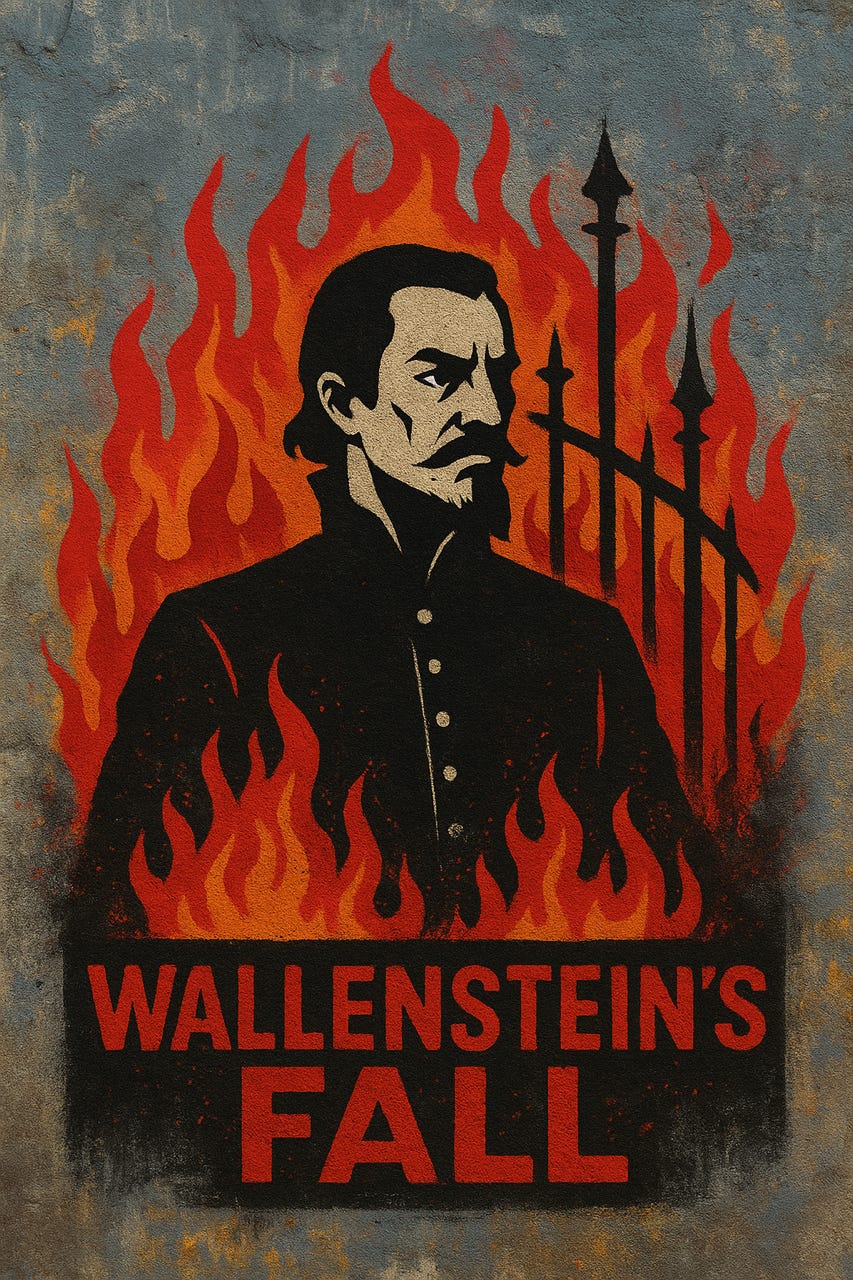Weekend Remix: Catch Up On The Counterfactual - 12th of July
Your weekend read, re-forged in the fires of historical speculation. Missed the drama? Let the remix reveal the rest.
The Grove and the Gate: When Kyiv Rewrote the Faith and Russia Never Rose
Whose Dynasty Is It Anyway? A Series Of Little Known Inheritance Conflicts. War of Spanish Succession? Heard it. War of Austrian Succession? So done. How about…
What if the pagan uprisings of the early 11th century overwhelmed both Orthodoxy and the princely state—birthing a pluralistic, Kyiv-led sacred order, and leaving Muscovy in the shadows?
En Route to Real History: The Kyivan Succession Crisis (1015–1019)
When Vladimir the Great died in 1015, he left behind a freshly baptized realm, dozens of sons, and zero instructions. None. Nihil. Zilch. Nada. Calling the Kyivan Rus' gifted by Vladimir a “succession crisis” would be putting it charitably, it was a sanctified slaughter.
Sviatopolk the Accursed—now this moniker is well deserved—made the first move, murdering his brothers Boris and Gleb in cold blood. The victims became saints. The killer became king. For a minute.
But from the northern wilds came Yaroslav, prince of Novgorod—armed with a mercenary fleet, a grudge, and the growing support of the Church. He fought Sviatopolk three times over four years, finally crushing him at the Battle of the Alta River in 1019.
Yaroslav the Wise emerged victorious as grand prince of Kyiv. Yaroslav also became sort of a founding father of a golden age. He built cathedrals, codified law, married his daughters into European royalty, and turned Kyiv into the Orthodox Jerusalem of the Slavs.
But the cost? Fraternal blood. Pagan backlash. A fragile unity forged by war and wrapped in Byzantine silk.
The Russian Orthodox Church would later claim this era as its divine inheritance. We won’t bore you with the Norman vs. anti-Norman historiography of this and the seven centuries later “Russia.” Let’s just say one is favored by the Soviets and Putin then the other is, well, real history.
However, for our purposes, there was a brief flicker where the story could’ve gone anywhere.
And Kyiv—ripe with doubt, rage, and sacred possibility—almost did go another way.
Prologue: The Forest Waits

(Backstabbing Edition) The Emperor’s Oath: Brotherhood and Betrayal - The Fall of Wallenstein
In the winter of 1634, Albrecht von Wallenstein, once the Emperor’s iron gauntlet, became the most feared figure in Europe—then, the most betrayed. This gripping rerouting plunges you into the heart of his final days: oaths made in candlelit halls, swords raised in the name of God, and a general who fell not by the blade of an enemy but by the hand of the man he served and called friend. The Emperor’s oath was a crown of thorns and Wallenstein’s loyalty, a blade turned back on itself.

“Let the stars fall from the heavens, but let no man break his oath.”
—Albrecht von Wallenstein, 1633
The Pact Forged in Iron
In the frozen breath of Bohemia’s winter, where the rivers ran black and the sky itself seemed to weep ash, two men stood bound by a promise: Emperor Ferdinand II, the pious keeper of Habsburg might, and Albrecht von Wallenstein, the generalissimo who commanded armies as other men commanded flocks. Their partnership was more than political—it was the spine of a war-torn empire, the marrow of a dying age. A friendship cast in mutual necessity that bore each man fruit. Until it didn’t.







